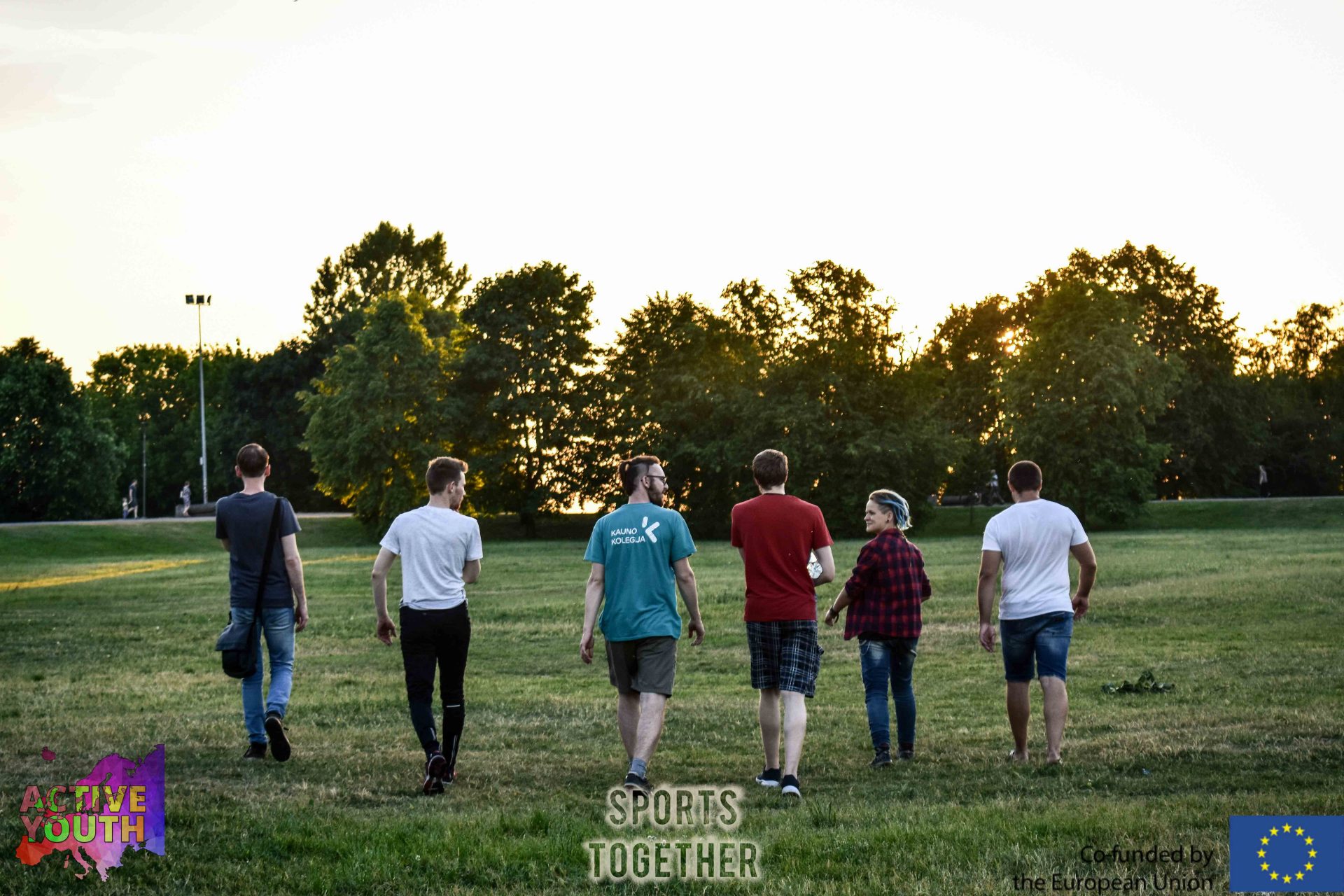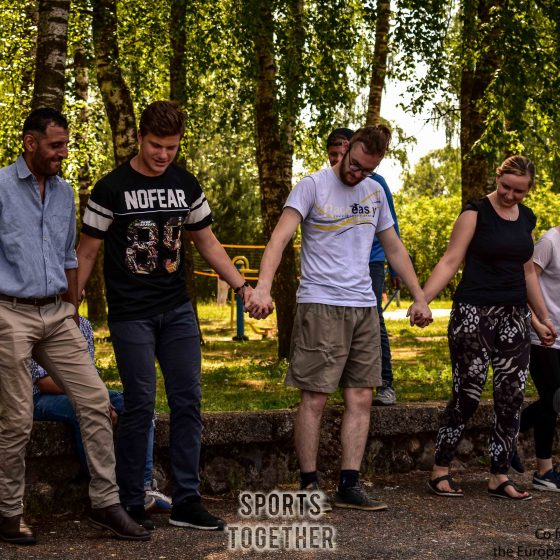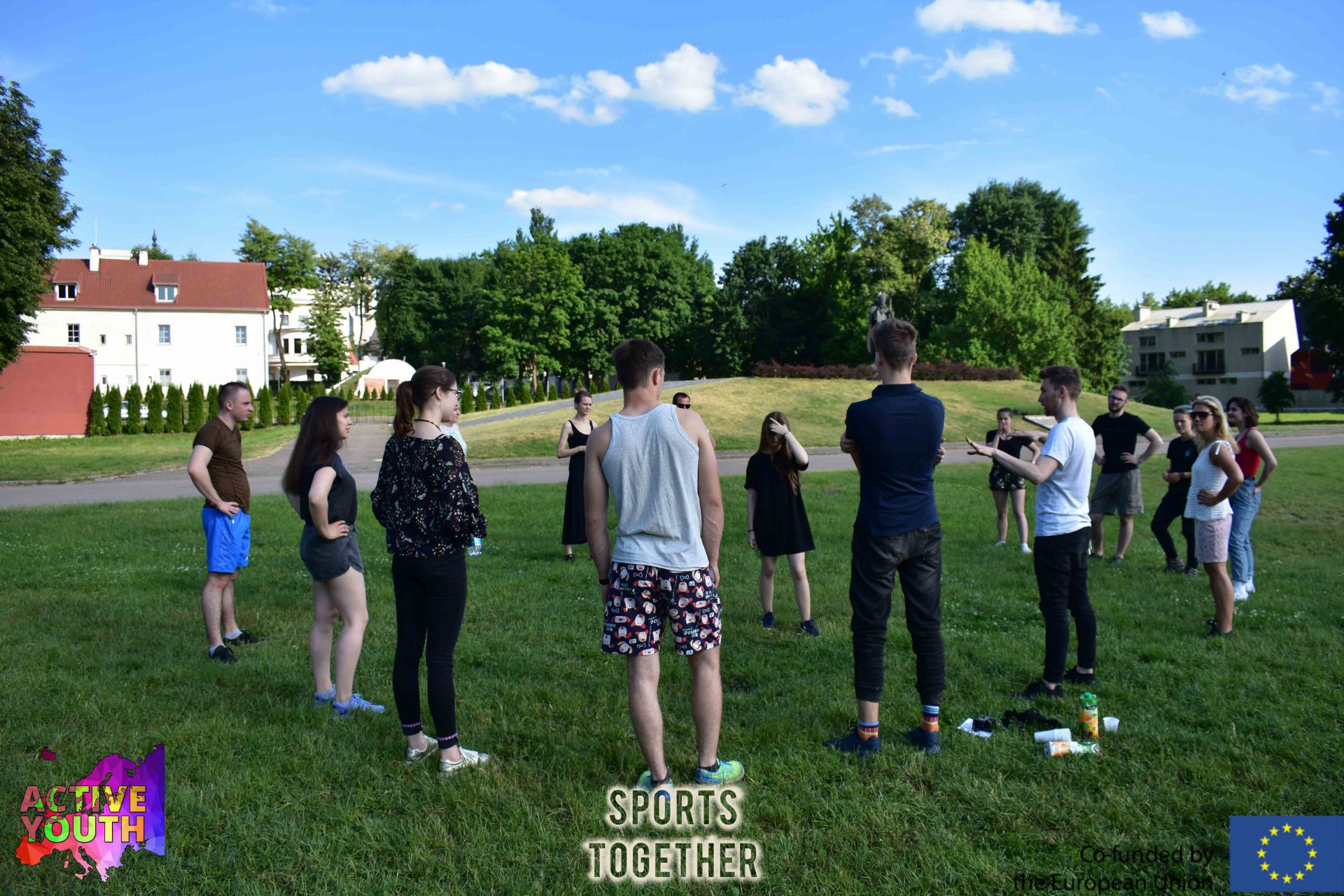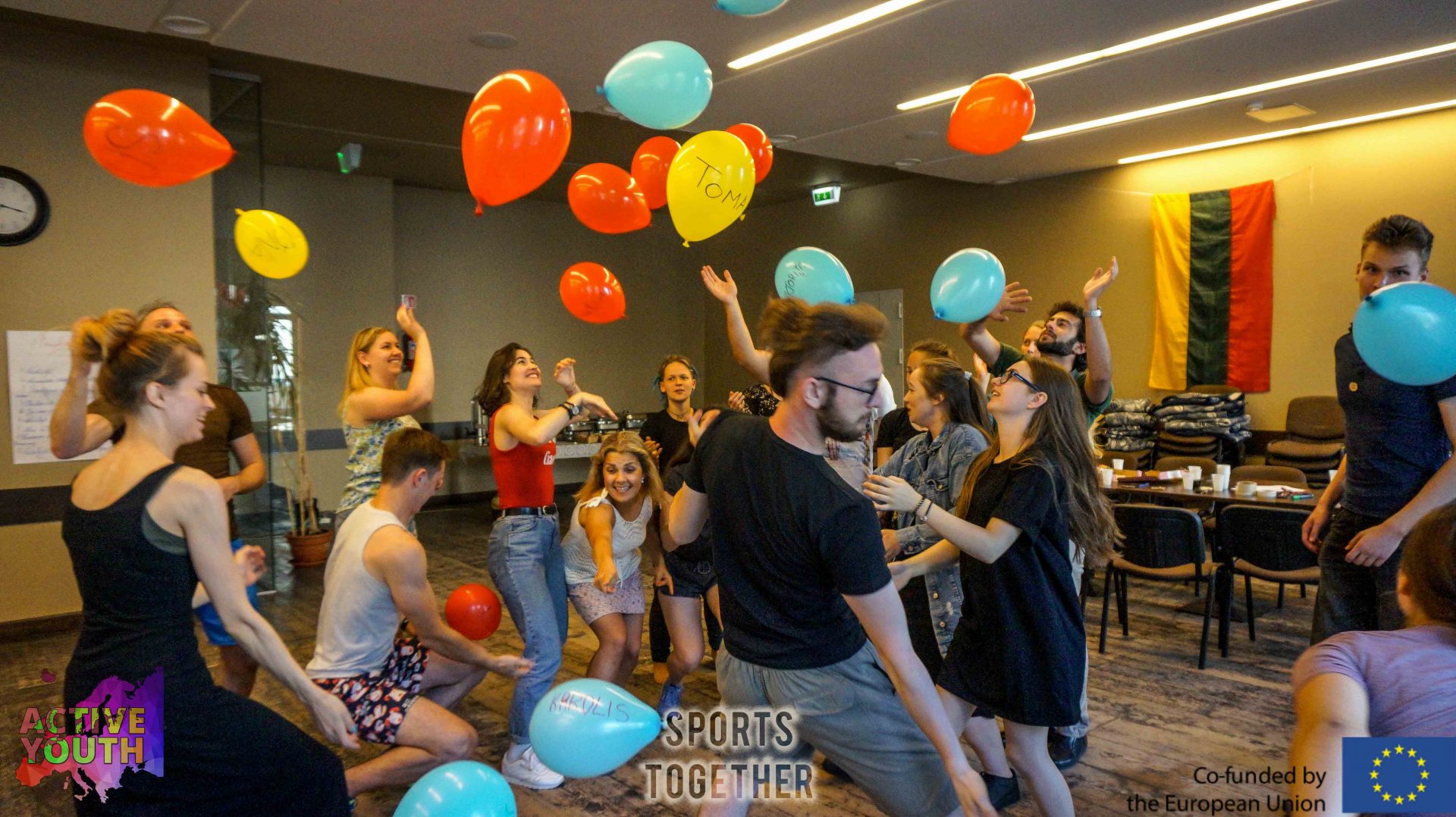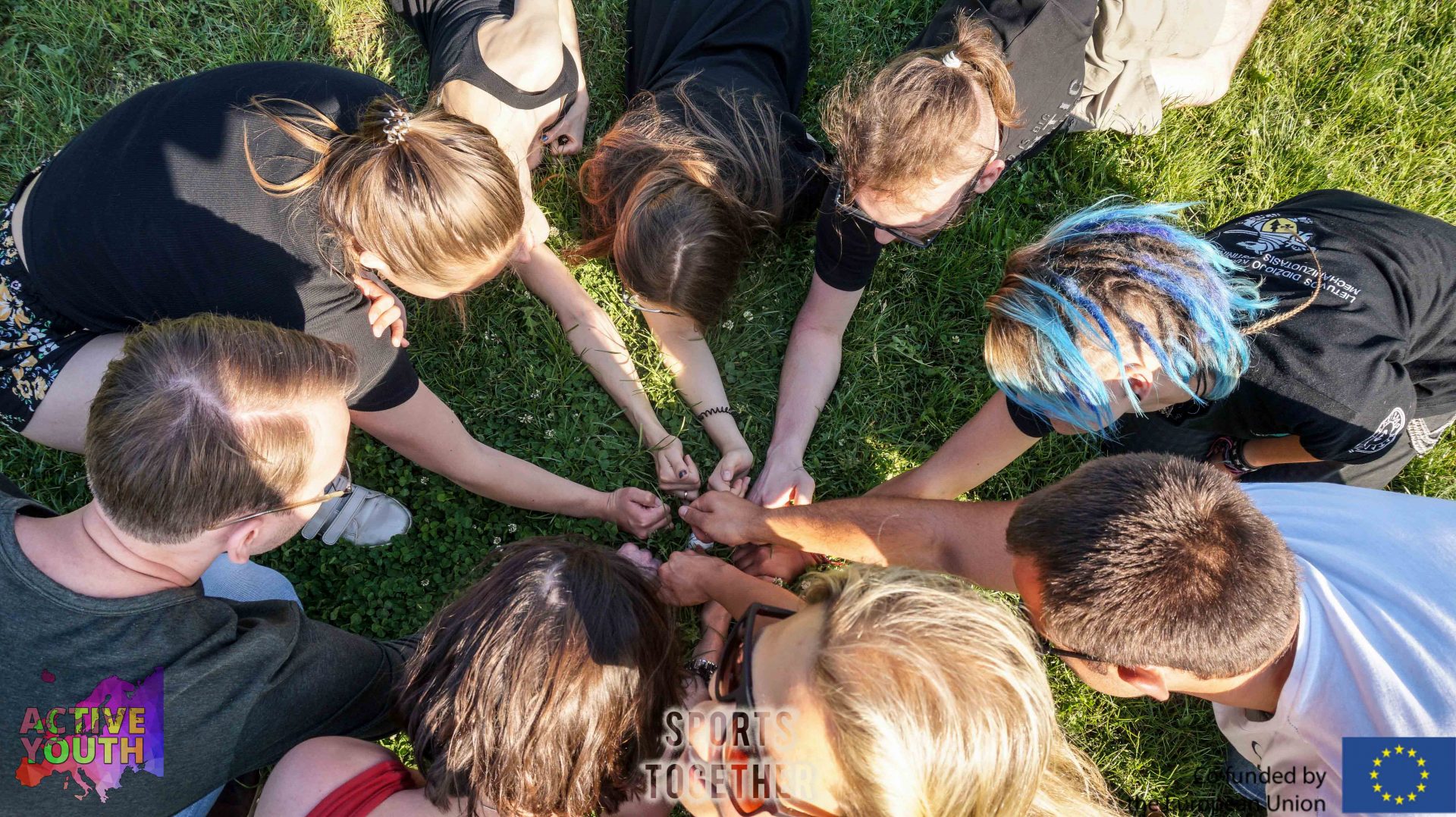As “Sports Together!” is a 1-year project with numerous activities involving both refugees and local youth, main hurdle of implementing these activities is lack of information and experience from the side of youth.
To prevent possible cultural and other clashes, training course “Sports Together!” united 20 young Lithuanians, who gathered in Kaunas, Lithuania on 26-31 of May, 2018. During the training participants learned more about current refugee issues, how other European countries are trying to solve them. Furthermore, possible solutions through sports activities were main aspect of the project, which our team focused on greatly.
Activities
One of the best ways for transfer of knowledge and experience is Non Formal Education, hence all of the activities carried out during the training course were focused around it. Team and roundtable discussions, interactive presentation by guest speaker, various interactive workshops – all of the activities were facilitated to ensure active participation of all participants and active exchange of ideas and knowledge.
Presentation of Refugee crisis in Europe and Lithuania
As the background of participants of the training course was diverse, short presentation on current issues refugees are facing all across the Europe was provided. During it discussions were facilitated not only on the issues, but how other countries / individuals are trying to solve them.
AirBnB opens its doors to provide free accommodation for refugees,French youth created a national event, inviting both locals and refugees to present and share their cooking skills in “refugee food festival” – these are just a couple of great examples of how we can work together.
Field research
“Everyone has different opinions, be their good or bad. In the meantime they can be grouped and used to help us find tendencies of the society.” With this idea in mind, we decided to carry out a field research, during which participants took up the role of national researchers, whose purpose was to find most relevant information and/or opinions of locals. “Do you have any friends, who are refugees?”; “What is a refugee for you?”; “Have you ever went to Refugee Integration Center or Camp?” – these are just a couple of numerous questions, thought out by participants, which intrigued them the most during this activity.
Guest presentation from integration center “inLT”
In Lithuania currently resides a couple centers actively supporting refugees. One of them is “inLT” by Lithuanian Red Cross. They are located in the Kaunas city center, providing various support to those in need (migrants, refugees, homeless, etc.). To showcase the everyday life of refugees, relocated to the cities and how social workers are providing aid to them, we had a visit to above-mentioned center to have an informal discussions.
Guest speaker shares his experience of daily life in Lithuania
Yevgenij Titov, a Russian refugee, joined our discussions during the training to share his experience living in Lithuania, hardships and hurdles he had to overcome and the light each day provides him while being here.
“Even though I live here only for a bit more than a year, I know Lithuanian. It’s not the best, but I can communicate with you which is great! Lithuanians are friendly and always helping me if I’m in need” – Yevgenij about his encounters with Lithuanians.
Visit to Rukla Refugee Integration Center
All of the activities facilitated during the training were leading to the event, created by participants in Rukla Refugee Integration Center (RRIC). Participants were provided with the task to create and carry out “day event” in RRIC. Equipped with different ideas and strong passion to help out refugees, participants worked tirelessly together to create a plan of carrying out during their visit in RRIC.
Dances, football, water balloons, soap bubbles – these and many other activities were brainstormed to do together with refugees. In the bright morning we were greeted with a couple of curious little faces, which later became wide smiles and laughters of many locals from many different countries,such as Kirgistan, Syria.
Success of the training
Organisers of the project saw a huge increase in competences, as well as knowledge of participants during the training course. All of the participants mentioned at least slight increase in their knowledge of current refugees crisis and how European countries and their residents are trying to solve refugee-related issues. Furthermore, majority of the workshops and discussions held were evaluated as 8.8 points (out of 10) and as one of the participants described his experience:
“ The atmosphere and other people were amazing! I learned a lot and the ability to apply in practise what we’ve learned during our visit with refugees was the best idea. Can’t wait to volunteer in other related activities.”
Project’s schedule, activities and material:
- Schedule of the training course (in LT);
- Info pack of the training course, with all the information for project participants (in LT);
- Refugee integration – Presentation about topic in Lithuania and Europe (in LT)
- Field research – to find out what locals know about Refugee crisis (in LT)
- Refugee integration through sports – Presentation for sport trainers and volunteers (in LT)

